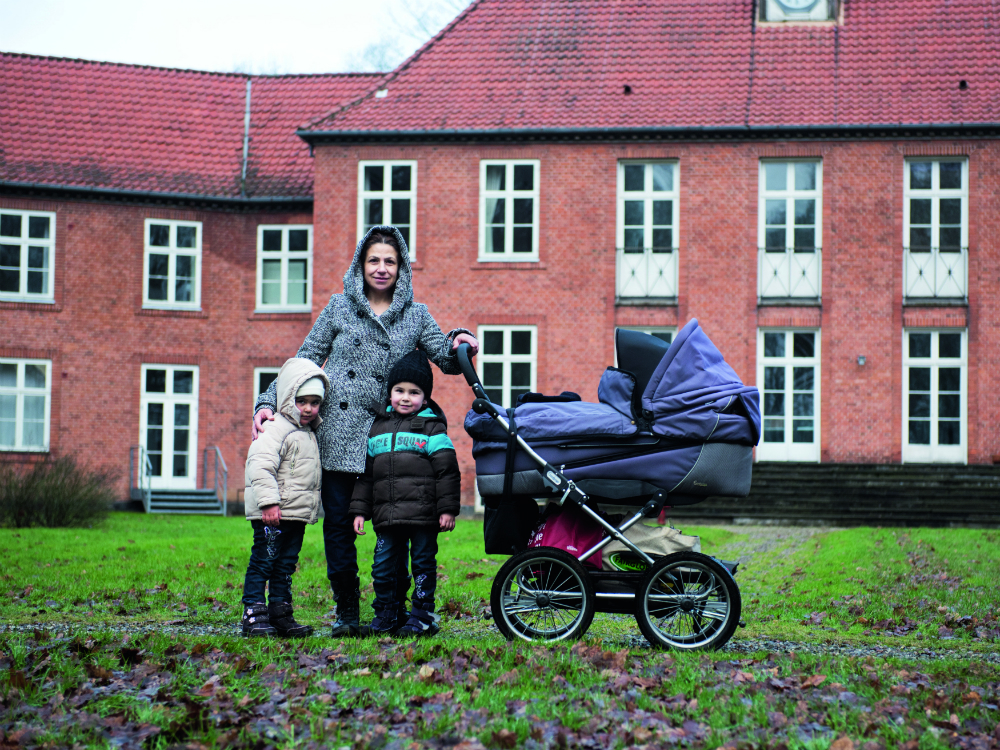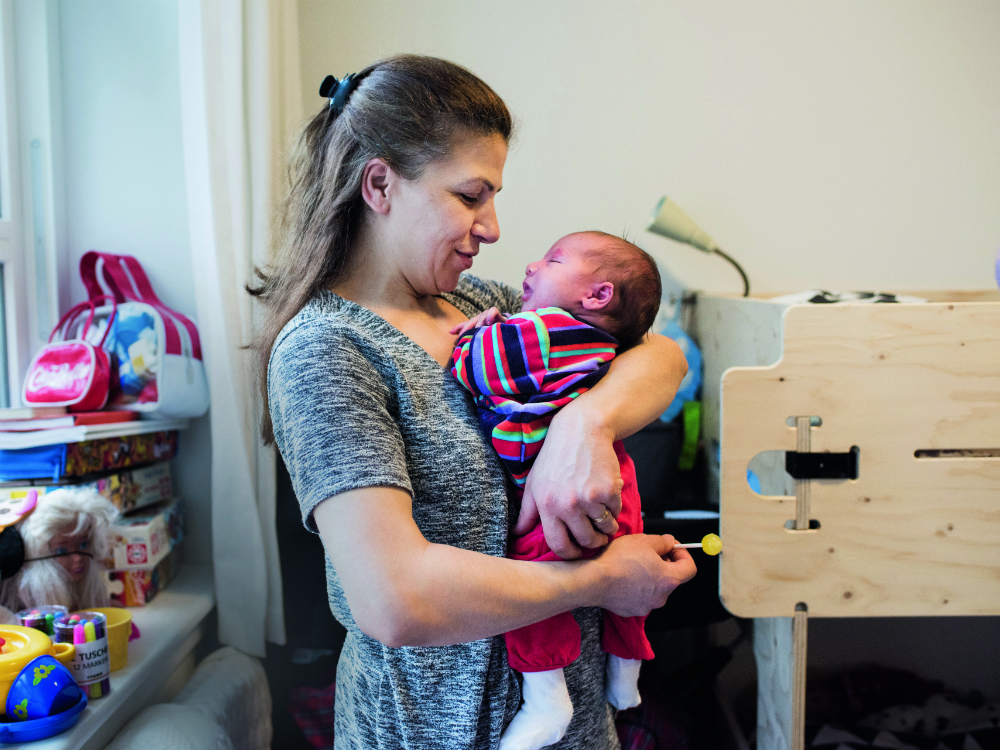A refugee in her own words: 'I feel like I'm worthless'
After leaving Syria last year and travelling to Europe, Aysha is now living in Denmark

Celebrity news, beauty, fashion advice, and fascinating features, delivered straight to your inbox!
You are now subscribed
Your newsletter sign-up was successful
After leaving Syria last year and travelling to Europe, Aysha is now living in Denmark
In September, Corinne Redfern travelled with Aysha, 40, and her daughters Sham, four, and Bisan, three, as they fled Syria in hope of a safer life in Europe. Now living in Denmark, Aysha gave birth to Julie 10 weeks ago, and is struggling to adjust.
Photo credit: Georgios Makkas
'If I was to do things again, I don't know if I'd have come to Europe. My husband is still in Syria, along with my sister-in-law and a few of my friends. We WhatsApp each other daily, and they tell me about the lack of food and the bombings. But despite everything, they're all in it together. They're all equal. Here, I'm made to feel like I'm worthless.
'When I arrived in Germany in September, I felt hopeful, but the camp was awful. Hundreds and hundreds of people sleeping in the same hall; everyone sick. After a week, I knew we had to leave. I went to the main office and explained that my sister lived in Denmark, and asked for my passport. 'Come back tomorrow,' they said. After three weeks of the same thing, the receptionist looked my name up on the system, and told me they hadn't logged it. 'If you want to leave, just leave,' she said quietly. 'You won't get your passport back, but there's no record that you were here.' She told me to make my own way across the border.
'After travelling by train to the north of Germany, we got a lift into Denmark and made our way to my sister's house. She said we could stay as long as we wanted, but in order to claim asylum and be joined by my husband, I knew we needed to be part of the system - which meant following the rules and going to a refugee camp. Waiting to register, we sat in a room on hard, plastic chairs for hours. Nobody told us what was going on, and nobody told us where we'd be sent. Sham and Bisan cried, and my bump ached. I just wanted somebody to ask me how I was, or to answer my questions. But we were completely ignored.
'Since then, we've been moved around a lot - often with only an hour's notice. Getting two children ready in that space of time is hard, but the worst part is never knowing where we're going to be sent. If somebody just gave us the name of a town, or even a region, I could Google it.
Celebrity news, beauty, fashion advice, and fascinating features, delivered straight to your inbox!

Photo credit: Georgios Makkas
'The camp we're in now is an old psychiatric hospital in the middle of nowhere. We have one room with three beds, and there is no ventilation, so the windows are dripping wet with stale air. Most of the other refugees here are men on their own, and that scares me. Everybody speaks different languages and it's hard to communicate, so tensions are high. Last week, a man had some money stolen from his room, but when he reported it to the police, they said they couldn't do anything, so now everybody knows you can commit crimes and get away with it. Fights are beginning to break out, and while we all share a kitchen, I don't go in unless there's another woman there. It's too dangerous. As a plus, we do have our own bathroom. Most other people here have to share.
'A few days after we arrived at this camp, my waters broke. It was midnight, but I panicked and called my husband. He calmed me down, then told me to phone a Danish woman who I'd met a few weeks before and who had offered to help. She took me to the hospital, but when I asked the midwife for pain relief, she said, 'No, that's not for you.' I said I'd had an epidural for both of my daughters in Syria, but she shook her head. I thought it must be a European thing, but then I saw a Danish woman being given one on the other side of the ward. Nine hours of agony later, Julie was born. After they sewed me up, I was given some paracetemol and sent away. Now Julie's belly button is infected and she won't stop crying - she screams all day, every day - but the nurse won't visit. I bought a pram, but it's too big to get down the stairs on my own. There's nobody to help me, and I'm so tired.
'Life is hard here, but I really am trying to make an effort and stay positive. I've got Danish books for my daughters, and when Julie is a bit older, I hope to go to language school. I don't see my sister much because she lives so far away, but after I gave birth, we were allowed to visit her for a week. She seems happy. Her family has their own house, and her daughter has her own bedroom. Now Sham wants one too - when we came back to the camp, she asked me why we all had to share. I didn't know what to tell her. She misses her dad, too. My husband video calls us every evening and tells the girls stories, but it's not enough. We need him here. I tell myself that maybe if I do everything properly, he can come and join us, and we can start looking towards the future. But right now, that feels impossible.'
The leading destination for fashion, beauty, shopping and finger-on-the-pulse views on the latest issues. Marie Claire's travel content helps you delight in discovering new destinations around the globe, offering a unique – and sometimes unchartered – travel experience. From new hotel openings to the destinations tipped to take over our travel calendars, this iconic name has it covered.